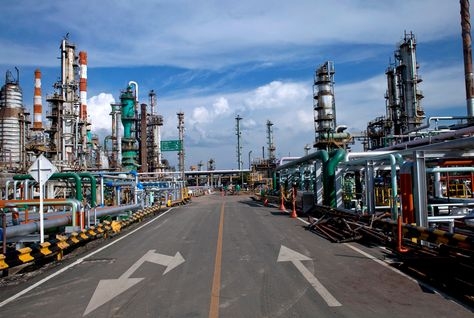Surging demand for energy in China and neighboring countries will also ensure that Saudi Arabia will reclaim its position as the world's leading oil producer after losing ground to the United States in the interim.
"Iraq is a game-changer in conventional oil and gas," said Maria van der Hoeven, the executive director at the IEA. "Chinese investment money will flow into the region, and oil will flow back to Beijing."
The IEA predicts that Iraq's production will rise from about 3 million barrels per day (bpd) now to about 6 million bpd in 2020 and more than 8 million bpd in 2035.
By that time, about 90 per cent of oil produced in the Middle East will be exported to Asia, says the IEA, which advises industrialized nations on energy policy. China alone will import about 6.5 million bpd of Arabian crude by 2035, more than three times the current amount.
The agency last week predicted that the US would outproduce Saudi Arabia within five years, as new production techniques open up previously inaccessible reserves – also known as unconventional oil and gas. This prompted Abdalla El Badri, the general secretary of Opec, to warn that this message could undermine investments in oil production in the group's member states.
But Mrs van der Hoeven believes that growing oil demand in China and other Asian countries make it lucrative for Saudi Arabia and its neighbours to keep investing in its production capacity.
Mr El Badri acknowledged that current Opec investment will remain in place. The group's members plan to invest about US$270bn (Dh991.69bn)into oil production in the five years up to 2016, adding 5 million bpd in output capacity.
"Investments will take place all over the world, in Opec and non-Opec countries. It's a matter of fact," she said. As a consequence, Saudi Arabia will once again become the world's biggest producer of oil by mid-2020.
"It's a resource point, there are more resources here [in the Arabian Gulf] than there," she added.
While the agency predicts non-Opec production to grow strongly this decade thanks to the boom in unconventional oil, it also expects Opec's output to rise in the years from 2020. As a result, the group's share of global production is forecast to increase from its current 42 to 50 per cent by 2035.
Opec will have to accommodate Iraq's dramatic capacity increase in the group's production ceiling, which it uses to avoid flooding the global markets with oil, said Mrs van der Hoeven. "There will be a lot of discussions going on within Opec."
The National
15 November






















































